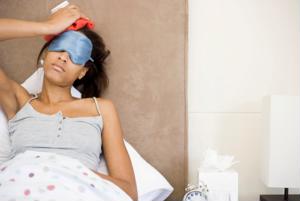
Few people know more about beauty than models, who spend most of the careers dedicated to looking their best. Recently, the Huffington Post interviewed Peggy Dillard Toone, the second African American model to ever be on the cover of Vogue, and founder of Turning Heads Salon in Harlem, New York City, which helped create the first natural black hair care curriculum for licensing in New York State. The model turned African American hair care pioneer discussed what beauty means to her.
According to Toone, she saw beauty everywhere she looked growing up, and her family used to use the natural ingredients found in their backyard such as red clay for skin care purposes. As she got older, she felt there was a need for a beauty salon that would encourage African American women to make the move from chemical to natural hair.
Next, the Post asked her to describe her beauty rituals.
"Take time with yourself. My philosophy is to incorporate the elements into a beauty regimen. Drink enough water, breath enough air, walk on the earth and get enough sun, or heat. My favorite rituals always involve water. I love baths for spiritual and physical purposes," said Toone, quoted by the news source.
Today, the website for Turning Heads Salon states that it now includes a day spa, making it Harlem's only full service salon and spa.









